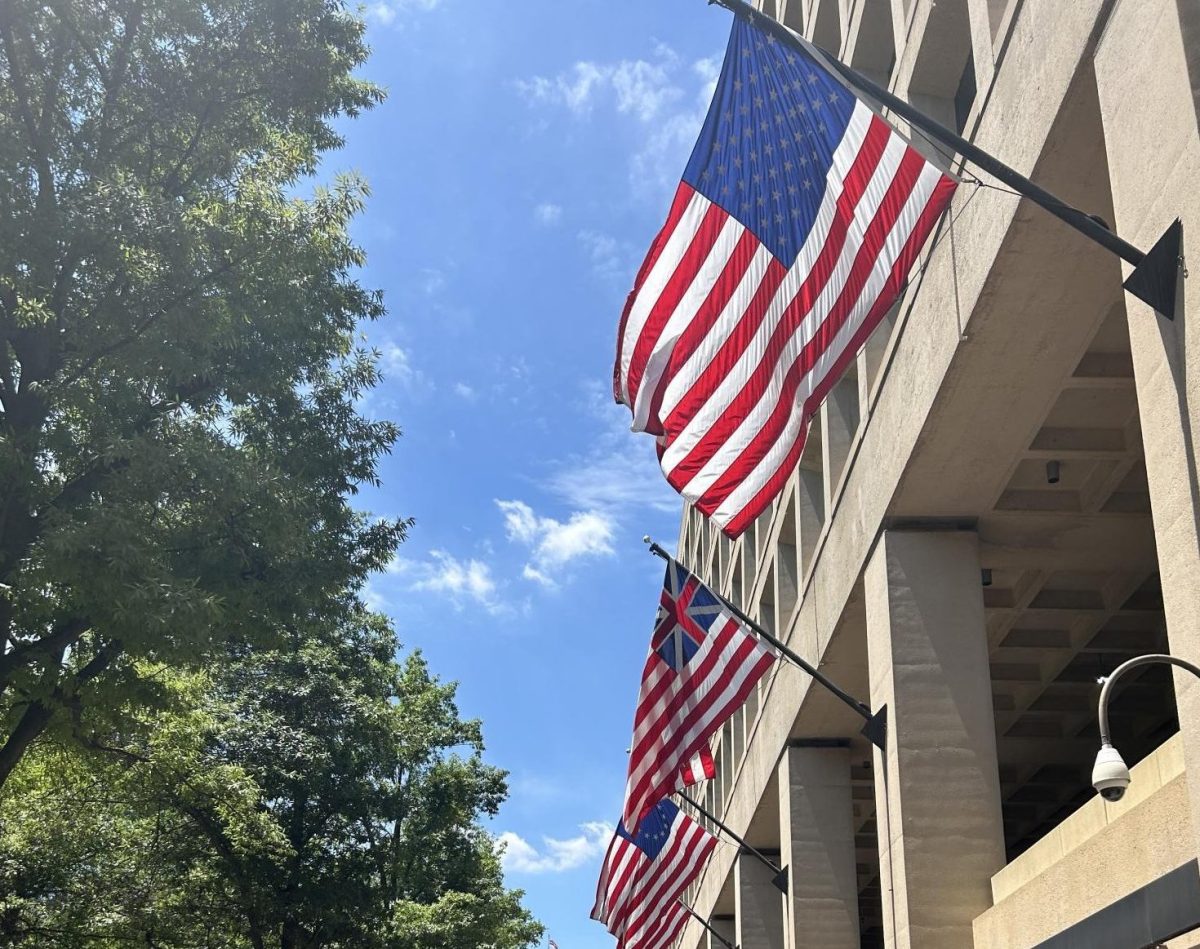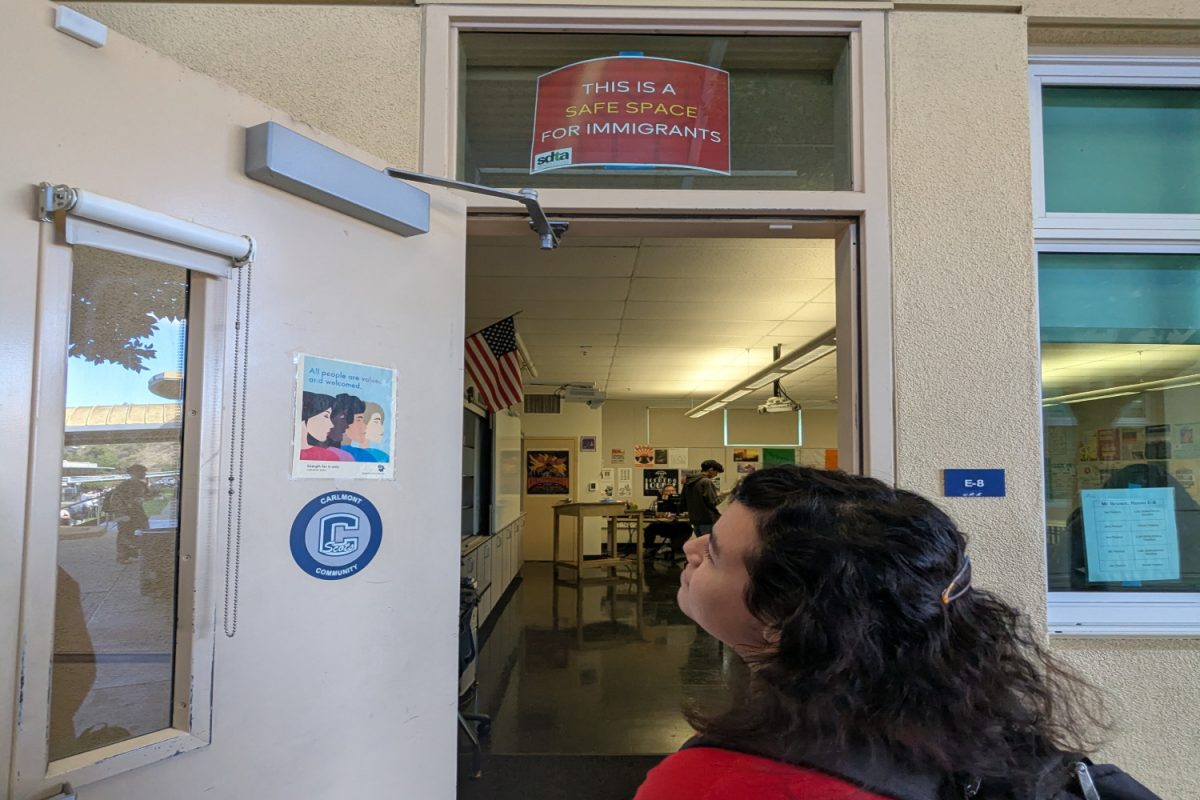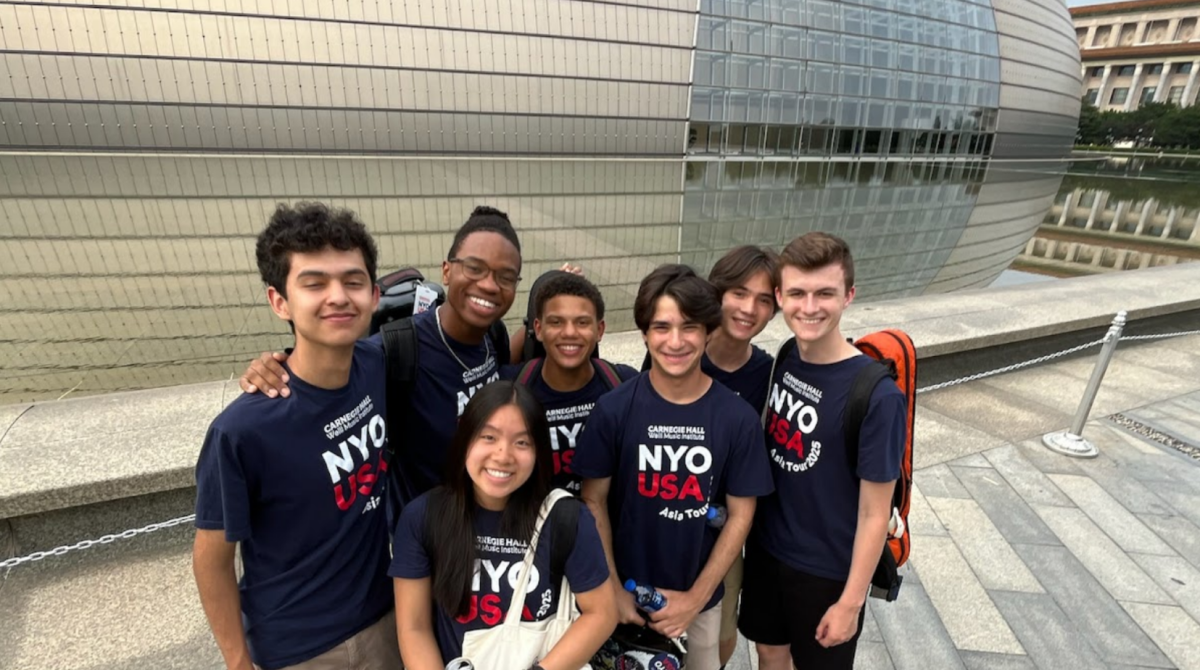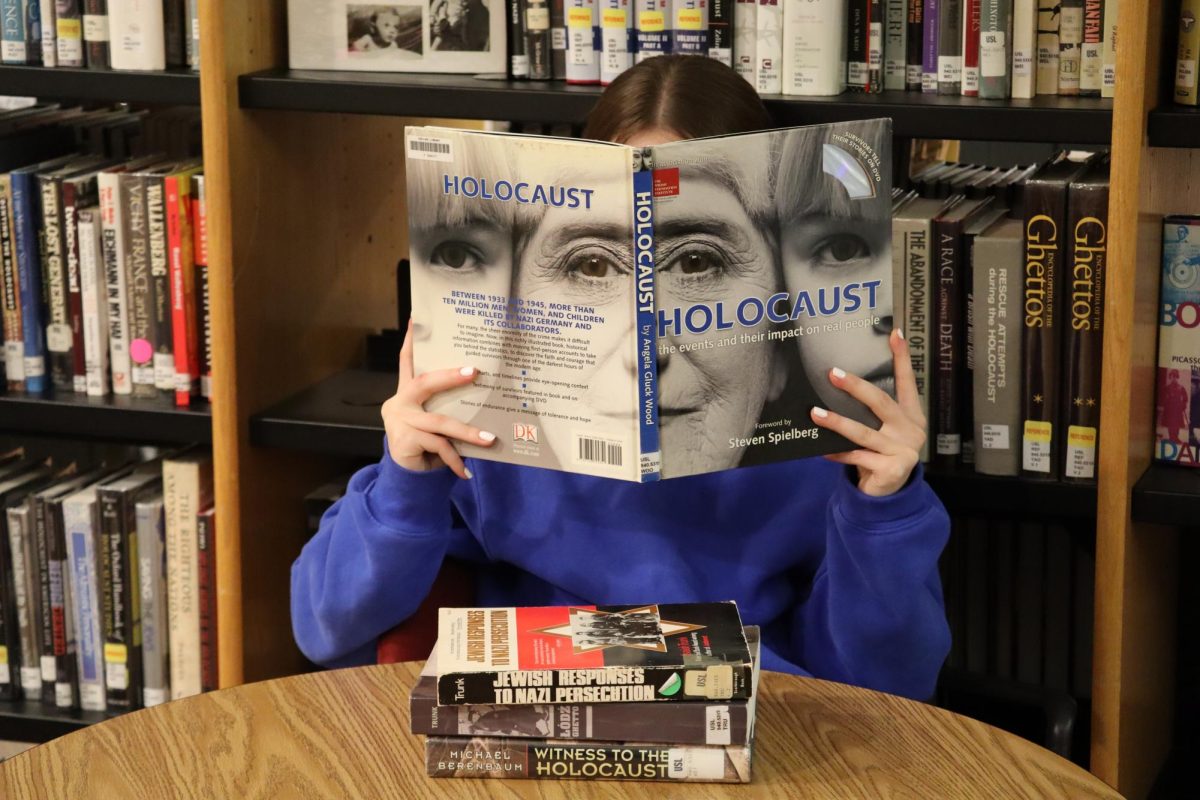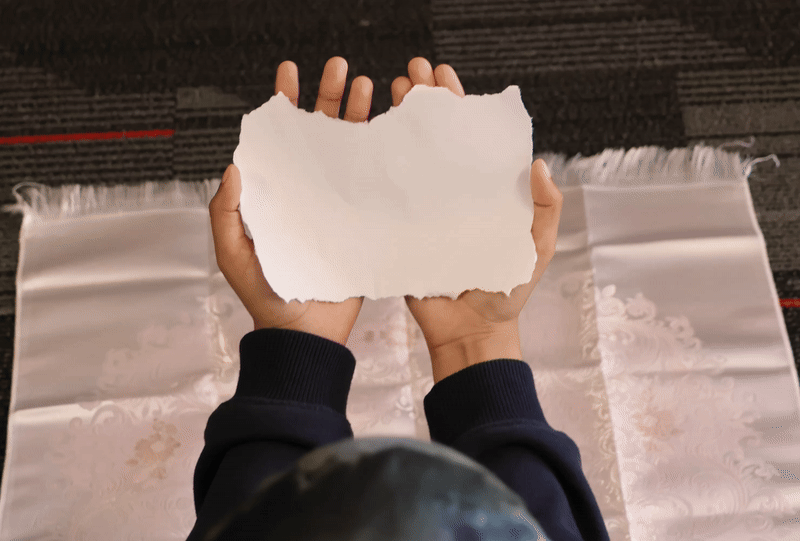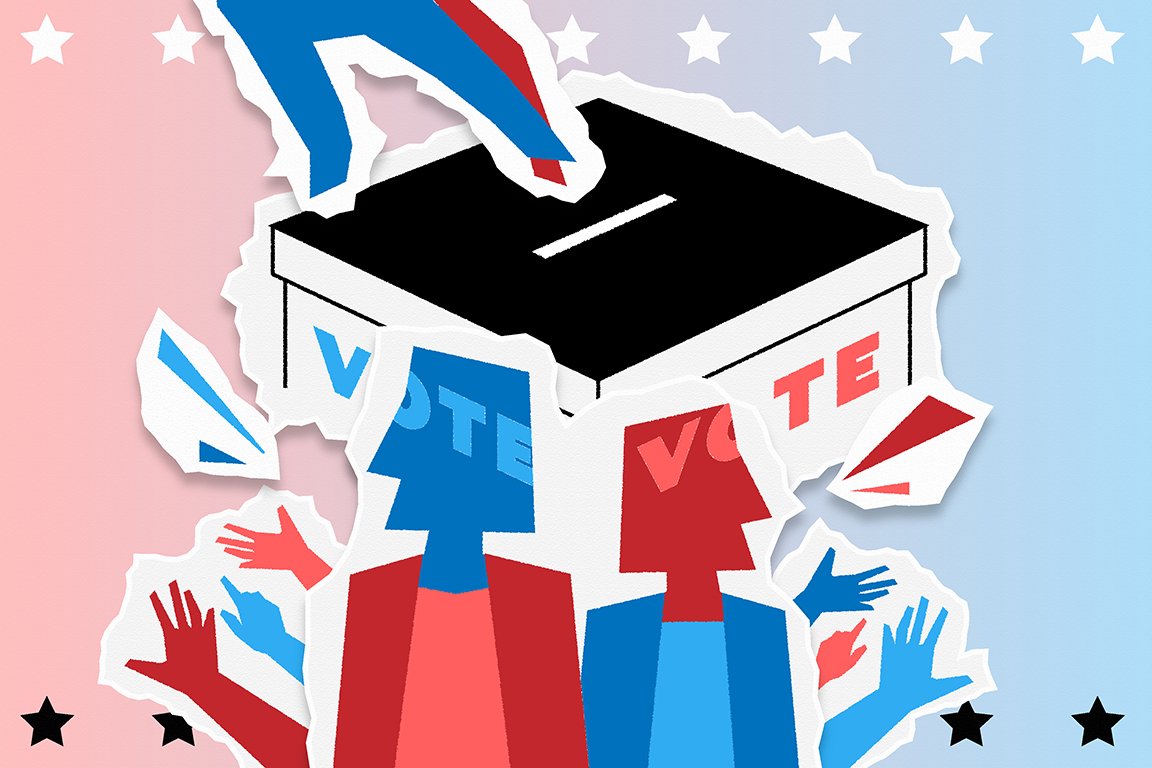Jews only make up 2.4% of the American adult population. However, it seems that every election year, without fail, politicians are fighting for the Jewish vote. Maybe it’s because of the large Jewish communities located in swing states, like Pennsylvania and Georgia. Or maybe it’s because many Jewish individuals and organizations are important campaign donors. Either way, it is clear that American Jews are an important piece of the electoral puzzle for any candidate.
Most years, Jewish voters hold the same concerns as their non-Jewish neighbors; they think of the economy, immigration, education and other important political issues. However, this yearis different. After the attack on Israel by Hamas terrorists on Oct. 7, many Jewish voters have Israel at the forefront of their minds.
Additionally, Jews across the country have recently faced an explosion in antisemitism. According to the Anti-Defamation League, antisemitic incidents have gone up every year since 2020, increasing a staggering 140% from 2022 to 2023. This is largely due to Oct. 7 and its aftermath.
On top of this, public opinion on the effectiveness of government is decreasing, as only 4% of American adults think the current U.S. political system is working well. In fact, a majority (63%) report that they have little or no confidence in the future of the U.S. political system. To complicate the matter even more, political polarization is at an all time high in the United States. According to the Pew Research Center, only 36% of Americans see any common ground between the Democratic and Republican parties.
“I went to a Hanukkah party on the hill once, and the first question every single person at the party asked me was, ‘Republican or Democrat?’” CESJDS parent Jesse Mendelson (senior Zev Mendelson) said. “ … Because they wanted to put me in whatever box they had already created for those things.”
With prominent domestic and foreign issues tied to this election, it is clear that the election will be complicated for American Jews.
Why Jews are an important piece of the puzzle:
There are many potential reasons why Jewish voters are seemingly so important to all kinds of political candidates.
According to Lee Feinstein, a CESJDS parent (senior Skye Feinstein) who was previously the U.S. Ambassador to Poland in the Obama Administration, one potential factor could be the Jewish presence in swing states.
“Pennsylvania, Michigan and Georgia are all swing states with significant Jewish populations.” Feinstein said. “Turnout among Jewish voters is also historically high in an election year where everybody expects it to be close, and a few 1,000 voters can make the difference. This is a constituency where even a small difference in how people vote could shape the outcome of the election in November.”
Another reason politicians may be fighting for the Jewish vote is because of the impact of Jewish donors. Jews are very involved in donations on both sides of the political spectrum. The fifth largest donor in this election, businessman Paul Singer, is Jewish and donated $39 million to the Republican party. On the other side, the sixth largest donor this election is former New York City Mayor and 2020 Democratic Presidential Candidate Michael Bloomberg, who donated $37 million to the Democratic party.
Additionally, Jewish Americans have historically put in effort to maintain political involvement in the country. According to PBS, Jews have been involved in social action since first arriving in America. Two examples of this are the 1902 Kosher Meat Boycott and the Jewish activists who were heavily involved in enacting better working conditions after the Triangle Shirtwaist Fire in 1911.
Daniel Silverberg, a JDS parent (senior Josie Silverberg and Matan Silverberg (‘23)) who previously worked as a lawyer for the Democratic Staff of the House Committee on Foreign Affairs, agrees with this. He cites the Jewish community organizations as another potential reason.
“The Jewish community has politically been extraordinarily well organized, and has been united up until recently on very specific issues,” Silverberg said. “So politicians would actively court the Jewish vote, because the Jewish community has been remarkably well organized politically. And if you’re a politician, it’s much easier to talk to an organized group and try and sway them than to spread your efforts around a lot of other people.”
While it may be the case that Jews are no longer one solid voting block, as Silverberg explained, there are still some key issues to agree on.
“I think we [Jews] have to recognize that we may have different visions of how to get support for Israel, but we all want that basic thing of support for Israel,” Tevi Troy, former White House Jewish Liaison under the George W. Bush administration, said.
How Jews’ political opinions changed post-Oct. 7:
For many new voters at JDS, political responses to Oct. 7 have been a key factor in helping them develop their political views. Senior Coby Meytin will be voting for the first time in this year’s election, and analyzing political responses following the Israel-Hamas War is a key factor in his voting research.
“Politicians’ responses to the atrocities of Oct. 7 also made me start to rethink my political views,” Meytin said. “The lack of meaningful action and, in some cases, harmful comments helped me to realize issues I had never considered before. Now, I’m more focused on who truly stands with the values that matter to me.”
For some American Jews, politicians’ actions regarding the U.S.’s relationship with Israel have caused some uneasiness in their views on the different parties and their candidates.
“ … [Biden] was very pro-Israel on the immediate days after Oct. 7, but has consistently been saying ‘ceasefire, ceasefire, don’t escalate,’ when what Israel needs is not non-escalation,” Troy said. “Israel needs victory. And so a lot of American Jews are uncomfortable with that approach.”
For other American Jews, watching politicians’ responses to the war only enhanced their previous beliefs on the parties.
“I’d say Oct. 7 didn’t change my political views, but it cemented the views I already had,” senior Rafi Siegel said. “ … I’ll be honest myself, I’d much rather a president who puts pressure on the Israeli government to do what is in their best interest, versus Donald Trump, who is just going to fall back and write a blank check to Netanyahu to do whatever he wants.”
There has been discussion over whether or not the political views of the wider Jewish community have also been altered by the ongoing Israel-Hamas War.
According to the U.S. Department of State, much of the antisemitism in the past year has emerged from the politically left-wing of America. In today’s political landscape, the Democratic Party is by-in-large the party that represents the political left. According to the Jewish Virtual Library, the majority of Jews have historically voted for the Democratic Party every election year since 1924. However, some pundits speculate that the rise of antisemitism associated with the left could dissuade Jews from voting Democratic this election.
While some believe there has been a big shift in Jewish-American’s political views, others believe this shift might be exaggerated by the media.
“I think the shift has been slight and not as large as people think it is, but it still is pronounced,” Silverberg said. “It’s happened for a couple of reasons: the Jewish community becoming more established and the politicization of Israel as an issue.”
Silverberg explained that previous generations of Jews who first immigrated to the United States were pro-labor and mostly pro-Israel. Now, Silverberg said, the Jewish community has developed, meaning some Jews are fiscally conservative in a way the community wasn’t before.
Additionally, Silverberg explained that Israel has become a more politicized issue than ever before, leading to a divide in the community on how to address the issue. However, some Jews, like Mendelson, believe that the divides in the community go much deeper than the surface.
“I don’t think that there is such a thing anymore as a Jewish voter,” Mendelson said. “Someone’s line might be, ‘what is your stance on Israel, or what is your stance on the economy, or what is your stance on the border, or whatever it is.’ And another Jewish voter might say, ‘what is your stance on social justice,’ and the things that they would love about one or other candidates are things that I might hate about other candidates.”
Whether or not Mendelson is correct, it is true that Jews tend to lean towards the Democratic Party in American politics. In a Pew Research survey from before Oct. 7, about seven in every ten Jews identified with or leaned toward the Democratic Party.
“I think most Jews are more secular, more liberal and are probably going to be more inclined to vote for Democrats,” senior Shalvah Lazarus said. “I think Oct. 7 definitely shook that up a little bit; we saw more Jews moving to the right because of a feeling of abandonment by the left.”
It is not just foreign policy that may be swaying Jews toward the right, since domestic antisemitism is also an issue to consider this year.
“If you look on college campuses and in the media and all the mainstream institutions, the antisemitism is coming from the left,” Troy said. “That doesn’t mean there’s not right-wing antisemitism. What it means is that the institutionally protected antisemitism is almost exclusively on the left.”
Troy is referring to is recent protests at college campuses across the country in support of the “Free Palestine” movement. In some cases, these protests have resulted in violence against Jewish students, like at Yale University and Columbia University.
Aside from current affairs, denominations are also an important factor in who Jews vote for. According to a Nishma Research poll of 1,296 voters, 93% of American Haredim intend to vote for former President Donald Trump. According to the Haredi Research Group, Haredim make up 14% of the world’s Jewish population.
In an additional poll done by Pew Research Center in 2021, 75% of Orthodox voters cited their support for the Republican party. This poll also surveyed Conservative and Reform voters, and the results show a clear divide by denomination: Conservative and Reform Jews overwhelmingly supported the Democratic Party at 70%, and 80%, respectively.
To some, it seems clear that the specific issue of the Israel-Hamas war in general is affecting the dynamics of the Jewish community as a whole.
“I think you are seeing lines being redrawn in ways that we haven’t seen for 50 years,” Silverberg said. “Before [Oct. 7], the major fights in the Jewish community were religious; who was the Orthodox versus Conservative versus Reform. Now, the majority of fights in the Jewish community are political. Where do you stand on Israel? Are you left? Are you right? Are you center?”
Even with all of these current issues and divisions within the Jewish community, many Jews feel it is still important to consider what is best for the country as a whole when casting their vote.
“I definitely see the importance of the American-Israeli alliance and I think that America does have a lot of influence in the Middle East,” Lazarus said. “However, I do not believe in voting for an American president based on their Israel policy. I think that is an important factor, especially for Jews who really care about the American-Israeli relationship, but I think that they should put their domestic politics first because ultimately that’s what a president is actually going to change.”
What candidates say about Judaism and antisemitism:
On both sides of the 2024 presidential election, candidates have been very open about their plans to combat antisemitism around the country. However, they have been less clear regarding specific plans for how to handle the war in Israel.
For these two candidates in particular, antisemitism is an important issue, as they are both closely related to Jewish individuals. For Harris, her husband Doug Emhoff is Jewish, while Trump’s daughter Ivanka Trump converted to Judaism and is married to Jared Kushner, an Orthodox Jew.
Both candidates have made strong statements against hate speech and antisemitism, however, Trump took a different stance than Harris on the issue of protests at colleges that often involve antisemitic activity. On May 14, 2024 Trump said that if elected into office, he would “throw [the protesters] out of the country.” Harris, on the other hand, was less adamant in her response. She told The Nation that while she absolutely rejects some of what the protestors are saying, she “understand[s] the emotion behind it.”
However, there has been controversy over the way both candidates have acknowledged Jewish voters. On Sept. 20, Trump stated that Jewish voters would be partly to blame if he loses the election.
“I think [Trump’s May 14 comment] is harmful because it plays into an age-old stereotype that Jews are blamed for things that happen that are entirely out of their control and to set Jews up to be scapegoated,” Silverberg said. “It struck me as irresponsible at best and malicious at worst.”
At the same time, some voters have begun to question Harris’ relationship with the Jewish community after not choosing Pennsylvania Governor Josh Shapiro to be her running mate. Shapiro is a practicing Jew, and was even sworn in using a Hebrew Bible, rather than the typical one.
According to The Philadelphia Inquirer, Shapiro is more popular in Pennsylvania than both Harris and Trump, and because the state is an important swing state with 19 electoral votes, picking Shapiro seemed like an obvious choice. However, on Aug. 6 Harris announced Minnesota Governor Tim Walz as her running mate instead.
Although the motive behind this decision was unclear, many Jewish voters felt disappointed in Harris’ pick.
“I was excited that it looked like Harris was going to pick a Jew who supports Israel as her Vice Presidential pick,” Meytin said. “I felt like the pick would show that she recognizes her potential Jewish voters, so it was definitely disappointing when she chose Walz instead.”
There is also Harris’ current role in the government to consider. Those who are unhappy with what the Biden administration is currently doing may draw a connection between that and her potential as the next president.
“There’s definitely a number of Jews who are disappointed with how the Biden administration and Kamala Harris have been critical of Israel’s handling of the war, pushing for a ceasefire and hostage deal,” Siegel said. “At the same time, the majority of Jews support a hostage deal, and even if they don’t agree with everything that Kamala Harris and the Biden administration have done, I still think that the amount of voters that Kamala Harris is losing because of her dealing with the war is small.”
Importance of election in the JDS community:
As a pluralistic community, JDS represents a variety of identities, leading to more political and social disagreements than one may see in a denominational institution. Although this might seem to make the environment more challenging, it also provides the learning opportunities.
“One really wonderful thing about JDS is there is a really wide range of views,” Feinstein said. “And I think in the classroom there’s really an effort to really respect a wide range of views in a community setting.”
Aside from the issues that may be particularly salient for the Jewish community in the upcoming election, America’s youth has even more to be concerned with. One concern is misinformation, and the influence of foreign regimes utilizing web-based communications and social media in spreading false information.
“I think one of the huge challenges with this election, for any voter, particularly newly minted and youthful voters, is access to good information,” Silverberg said. “The first thing I would strongly encourage any voter is to get out of their own bubble and ecosystem of information and try and track down legitimate news sources.”
For many seniors at JDS, this will be their first time voting. This represents an important opportunity for voting-age JDS students to put into action the many things they have learned in their years about civics and the role of voting in influencing national policies. And for those students who cannot yet vote, this election represents an important opportunity for dinner table conversation with parents and relatives that can.
Given these opportunities and challenges, Jews of all ages should continue to hold a strong stake in the election. As we have seen in recent election results, votes do matter. Recent elections have been decided by very thin margins with a few thousand votes making the difference between electoral success and failure.
“Jews are engaged voters, and that’s one of the reasons even though we’re two to three percent of the population, that’s why politicians are paying attention,” Troy said.
This story was originally published on The Lion’s Tale on November 1, 2024.


